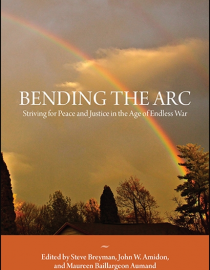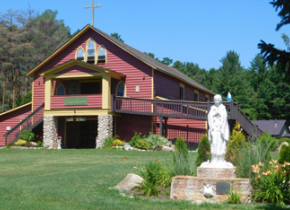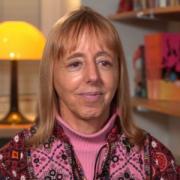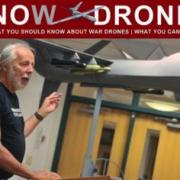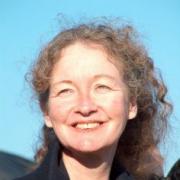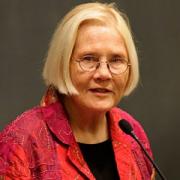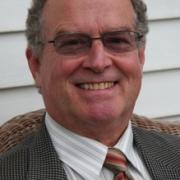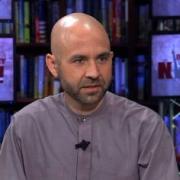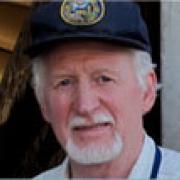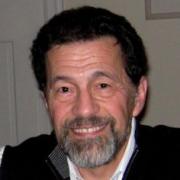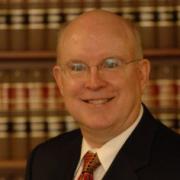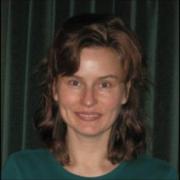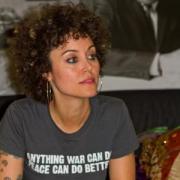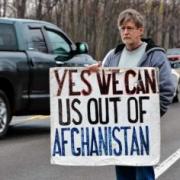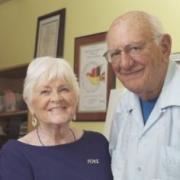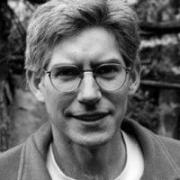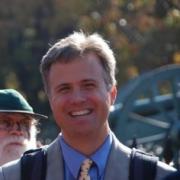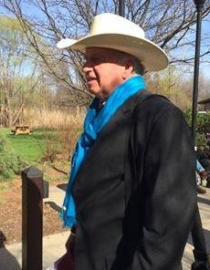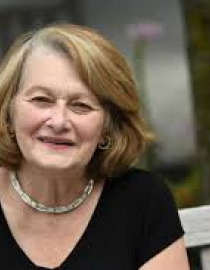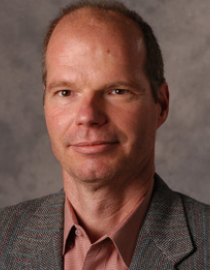from SUNY Press
within 30 days of attending the
2020 conference.
Click here to register
for the 2020 conference.
Click here to
Order from SUNY
Click Here to
Order from Amazon
On August 1. 2020, SUNY Press published BENDING THE ARC: Striving for Peace and Justice in the Time of Endless War, a.k.a. the Kateri Peace Conference book.
The book is a series of autobiographical essays written by 15 US-based peace and justice activists all of which have presented at the Kateri Peace Conference, many several times. The Conference has been meeting annually each August in Fonda, New York since John Amidon founded it in the late 90’s until 2020 when the conference had to go online due to the coronavirus pandemic. Maureen Aumand has helped to coordinate it since 2003. Dr. Steve Breyman, was teaching at RPI when he conceived of the idea of the book, which ultimately led to collaboration between the three of them to create the book.
After some reflection, they landed on the idea to send invitations to a number of speakers who represented a broad array of those who had provided information, inspiration and clarion calls to action over the course of the conference’s long history. Together they developed a series of common reflections which they invited each author who accepted the invitation to address, in what would become a chapter for the book. See below for the questions asked and a list of authors and chapters.
They were determined that the book merited a serious and recognized publisher and were thrilled when SUNY Press, a long-standing and recognized academic publisher, accepted the book prospectus. Graced with a beautiful cover photography of Women Against War and local social justice activist and artist, Jeanne Finley, the books publication was a most satisfying birth.
The title of the book was almost a given premised as it was on the centrality of Dr. King’s vision to the Fonda Peace Conference.
Enjoyable, interesting, moving to read. It will help readers understand why and how people actually get involved with peace work.
~ Jason DelGandio, activist and scholar of activism and its rhetorical embodiment
BENDING THE ARC fuses seamlessly the personal and political voices of valiant U.S. peace and justice activists, engaged both here and globally. This book will inspire anyone in need of stamina to stay in the arduous quest for peace and justice in this era of war without end.”
~ Patricia Hynes, Director of The Western Massachusetts Traprock Center for Peace and Justice
Authors of each chapter were invited to reflect on:
- Their own lives as activists, to examine the roots of their personal commitment to peace and justice; to examine the place faith, spiritual traditions, education, and experience played in their commitments; to share the inspiration provided by specific individuals, moments, and events in history, or on a specific illuminating moment in their lives.
- The features of their peace work: the details over time plus particular anecdotes that illuminate it.
- On the challenges and imperatives that drive their work for peace, the challenges that mark it, and what it taught them.
- The dynamics that give rise to war as well as peace and justice; on the deepest needs of humanity; on the greatest obstacles to peace and justice, and on the contours and opportunities of the current historical moment.
- Their personal visions: on how political and spiritual engagement affect their belief in a “world beyond war”; on what people need to know to enable them to engage in protracted struggle; on what core beliefs sustain their work.
With the addition of a hard-hitting introduction by Dr. Steve Breyman, two introductory chapters written by John and Maureen provide an overview of the Kateri Peace Conference’s history and vision as context for the essays, and a conclusion which is a merged reflection by the book’s three editors on the fifteen authors’ work and commitments to peace and justice.
In the book’s conclusion, the editors note that BENDING THE ARC is a book about journeys with each author exploring the contours of the path which has led them to a life committed to peace and justice.
For Medea Benjamin it was in part the transformation of her sister’s All American suburb-bred boyfriend into someone who could casually send a callous war trophy home from Vietnam that stirred her to begin to travel the globe in a quest for understanding and to ponder and challenge war.
For Nick Mottern it was also a transformation from an adventure-seeking young officer, intrigued by the Graham Greene mystique which a Southeast Asia sojourn held for him, to someone who came to understand the lure and dangers of Empire building and builders, an understanding that has fueled his life commitments to the common good and the disavowal of war.
Though Kathy Kelly’s mother warned her not to get “too big for her britches”, Kathy’s journey took her from the teacher of private school students in Chicago to an inner city public school, soup kitchens and an understanding of the horrors which inequality and accompanying violence meted out in her immediate world, and finally to an embrace of the entire world harrowed by war and injustice where she has become a body on the line – be it in prison with the disenfranchised or under falling bombs – and voice for so many of world’s victims.
Ann Wright may be one of the most incongruous of peace activists, albeit at this point in her life the most peripatetic. Her journey into the military embarked on “to see the world”, to be of service and to gain access to further education, moved her through the ranks where she retired as a Colonel, through the diplomatic Corps with many globally exotic and successful embassy postings, to a dramatic and public resignation from the State Department in response to the US government’s will to war in Iraq. Since then, having discovered the global community of active peace builders, this Veteran for Peace has never stopped lending her shoulder to the work.
Locally, former NYS Judge Advocate, Steven Downs, on the edge of retirement, found himself shocked to hear of local peace activists being thrown out of Crossgates Mall a few days before Christmas in 2002 for wearing shirts which read PEACE ON EARTH. When he personally tested the assumed exaggerated reality of this story, Steve found himself in handcuffs and from there on has pulled from the wellsprings of a deeply engrained sense of justice and compassion a fierce commitment to justice for those marginalized and harried by post 9/11 fear and injustice.”
The Reverend Chris Antal’s journey, which has led him to his current position as a Unitarian Minister committed to living and teaching the community’s Covenanted commitment to peace, has had many twists and detours. The young college art student came to find in wholehearted spiritual commitment a pathway to respond to the geopolitical upheavals surrounding, becoming first a member , then husband and finally scholar researcher on issues of religious tolerance in the Reverend Moon’s Church of Unification and then a US Army military chaplain, determined to provide counter voice to the dangerous link being forged between US exceptionalism and religion in Iraq and Afghanistan. The military’s response to the honesty of his preaching and the national acceptance of drone warfare has further refined and defined his peace ministry at this point in his journey.
BENDING THE ARC also details the journeys of several scholar activists including Professors Jim Jennings, Lawrence Davidson and Loyola University law professor Bill Quigley. For Jennings, an already seasoned Middle East archeologist, the impetus to founding Conscience International and Academics for Peace came as he watched a televised report on the plight of the Kurds escaping the horrors in Iraq at the end of Desert Storm, trapped and starving on a mountainside. The leap from his chair into action has propelled him to work tirelessly as a citizen diplomat and facilitator of peace marches and peace delegations to governments and entities with which we have severed diplomatic ties.
For Davidson, the passions and critiques honed during his youth working with SDS in opposition to the Vietnam War has given him framework and set him on the path for his long support of Palestinian rights as well as a long and successful university and writing career. His has become a quest to understand the myopia which enables us to accept the unacceptable in history, be it the imprisonment of a whole people within armed camps or the manufactured will to war that generates the flag waving needed to have young people march off to unwinnable conflict.
Bill Quigley’s journey, honed by his early embrace of Catholic social teaching and his schooling as an organizer by racial justice activists in New Orleans, his personal experiences of the impact of social injustice clarified during Hurricane Katrina – has brought him over time into courtrooms, national and international, in defense of those tried (some in this volume) for their peaceful opposition to war and injustice or caught up in the maelstrom of post 9/11 unjust imprisonment.
Kristin Christman’s quest to analyze the roots of violence and war and the alternatives to them was set in motion in the flash of the falling towers and the then Congressman Dennis Kucinich’s subsequent efforts to create a Department of Peace. It has set her on a relentless journey to complete A PARADIGM FOR PEACE, a multi-volume, analytical tool for activists and statesmen which might, through its painstakingly defined analytics, throw light on pathways alternative to war.
For the Reverend Felicia Parazaider, founder of The Revolution of Love, who was raised as the privileged child of a rock star, the quest was first for sobriety and meaning. Her journey has ultimately found that meaning in a fierce commitment to decrying war and injustice, facing arrest and using her non-traditional pulpit as a “spiritual activist,” inviting people into a framework which would end the cycles of violence which disrupt society in the microcosm as well as microcosm.
For Ed Kinane, holy rebellion has marked his evolution from a young academic anthropologist to a teacher of English in Kenya’s back country, to prison cells for stepping over the line in Fort Benning, Georgia to working tirelessly along with his partner Anne Tiffany to bring attention to the horrors of drone warfare perpetrated by soldiers in their home city of Syracuse as founders and organizers of the Upstate Drone Coalition.
BENDING THE ARC is dedicated to Blase Bonpane ( now deceased) whose early aspirations as a college football player quickly gave way to a commitment to religious life as a Maryknoll missionary. The experience, however, of seeing first-hand that the US was supporting oppression and injustice in Latin America and his inability to remain silent about this knowledge, propelled him out of that community and, as a blackballed professor, academia, and on to a road which led him with his beloved wife Theresa into community organizing for Caesar Chavez and ultimately founding The Office of the Americas which became a crucial center for supporting, organizing and advocating human rights and peace activism in both our Northern and Southern Hemispheres as well as around the globe.
For environmental and simple living advocate Jim Merkel, peace and justice are intricately connected to a disavowal of militarism and consumer culture. This realization was slow coming and sprung from gradual realization garnered from his work as an engineer for the military industrial complex. Once embarked on, Merkel’s quest has led him to travel the globe looking for and analyzing “small footprint” societies and detailing and celebrating the quality of life which he has come to believe would mark a peaceful and sustainable future.
David Swanson, whose writing and cheerleading and organizing and motivating for a“ world beyond war” is now intrepid, says that when he realized that one could live a life as an advocate for peace, it seemed an inevitable and given imperative. However, before that realization, his quest to find his path, educationally and professionally, was constant and changing. Through a journey which saw him morph from a would-be city planner architect to a philosophy student and an organizer for ACORN and Dennis Kucinich’s Presidential Campaign, he honed the skills needed to confront the scourge of war which he actively works to share in the globally platformed World Beyond War.
Obviously, these thumbnail sketches, intended to highlight the book’s authors, can provide only a hint of the riches which their full reflections offer the reader of BENDING THE ARC. The chapters each resound with the unique voices, experiences, motivations, insights, vision of each.
At the same time, as indicated in the conclusion, there are certain commonalities among these former soldiers, scholars, writers, teachers, clergy and grassroots activists which serve to reflect and augment one another.
The activists within the pages have in the main exercised great courage: facing prison, bombs, disapproval, rejection, uncertainty. They often remark that they have confronted fear not destroyed it. But they are humble in their acknowledgment that they “stand on the shoulders of giants” themselves and exist in and are strengthened by the broader community of concern and their acknowledgment that the effort to know and understand the world is never complete. They also frequently acknowledge that there is no promise of success, that the struggle to bend the arc of history is a long and patient one. In the face of that, Maureen Aumand was fascinating as she developed the book’s index, how often these activists speak of joy as an inherent part of this struggle with others.
Another commonality among the writers, is the power of travel to expand vision. As noted in the conclusion: “Their paths led them far and wide, their peacemaking peripatetic and global. They have wandered on almost every continent, embracing the world’s cultures and peoples in a quest to understand the world and witness for peace. These activists had their vision and focus shaped by living in the homes of, teaching the children of, looking into the eyes of, breaking bread and singing and dancing in solidarity with so many for whom the horrors of war and the crushing burdens of human injustice and inequality have been all too real.”
The editors of this book concluded after reading the essays, that though each of the writers may have taken on individual aspects of the great task of seeding peace, they “understand that fundamental system change is necessary” as “ they yearn for the day that the seeds of peace take root and blossom” acknowledging that “that day may come but not before more years of nonviolent resistance, active citizenship, and deeply engaged political participation”.

